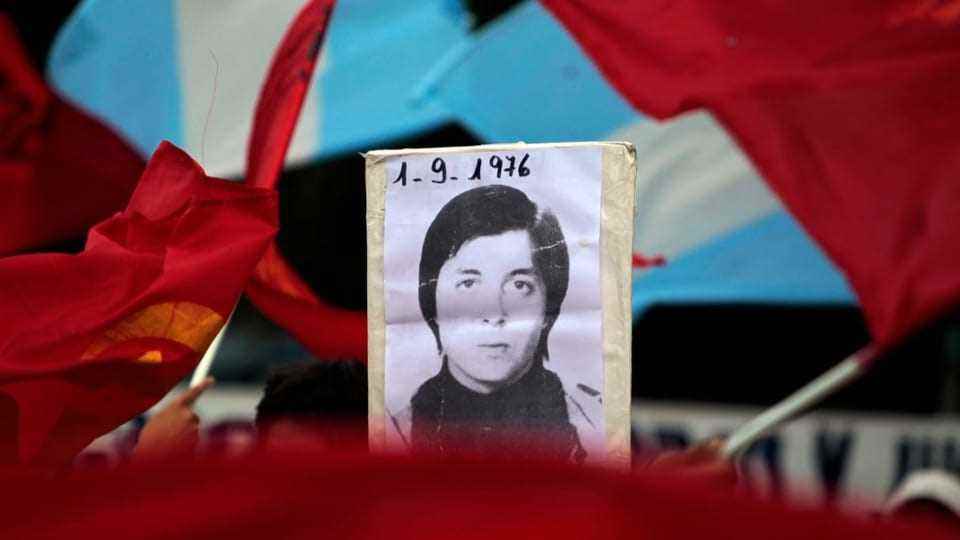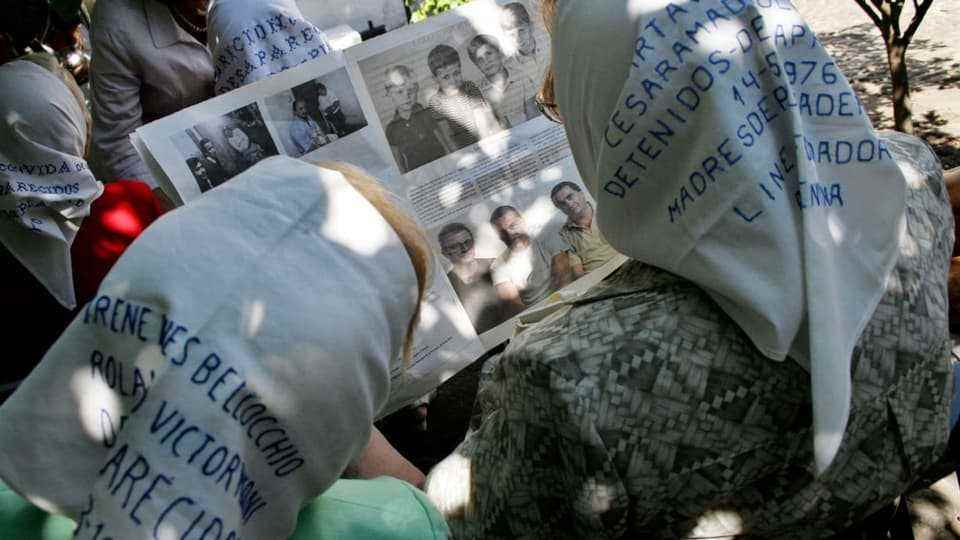Ten former military and police officers were sentenced to life imprisonment in Argentina on Thursday for crimes against humanity. Another nine received prison sentences, some of them long. It is about the atrocities during the military dictatorship (1976-1983). These are not the first convictions in this context. This is unusual for South America, says ARD correspondent Anne Herrberg.
SRF News: What are the convicts accused of?
Anne Herrberg: Serious human rights crimes. There are cases of enforced disappearance, torture, murder. And it’s also about the systematic tactics of the military dictatorship of robbing babies from pregnant prisoners and giving them to military families for adoption. Military personnel who took part in so-called death flights were also convicted. That, too, was a brutal, systematic practice. Prisoners were drugged, loaded onto planes and simply dropped over the open sea or the Rio de la Plata to be disposed of over the water, so to speak.

Legend:
At that time, the junta in Argentina took merciless action against opponents of the regime, tortured and murdered. Human rights organizations assume that 30,000 people have disappeared during this time – members of the opposition, trade unionists and students.
Reuters
How important are the judgments for the processing of this time?
One speaks of a mega process. This means that crimes committed against around 350 victims are dealt with there. The special thing about it is that there are trials where every single accused has to be proven for the single crime. You have to imagine what kind of legal work is behind it.
It is very important for the relatives that this justice has now been done.
These processes often go on for years. And the victims involved have family members who are still alive. They also follow these processes and have been waiting for justice for years. And that justice has now been done is very important.
So the country is working through its history meticulously?
Yes. And I also want to emphasize that, because I think it is something very special that can be observed in very few countries in the world. There were military dictatorships in many countries in South America. But Argentina is actually exemplary. Amnesty laws were in place for many years. These were overturned by the Supreme Court in 2005. The first trials began in 2009.

Legend:
The “Madres de Plaza de Mayo”, some of whom are now grandmothers, gathered to protest on the square in Buenos Aires even during the dictatorship.
Reuters
Over 1,000 former military and police officers have now been convicted. In this respect, one can really emphasize Argentina’s role in working through its history legally on its own. And this processing is now state policy. Society is actually coming to terms with its past.
Why doesn’t this work in Argentina and elsewhere?
There are several things that come together. On the one hand, these crimes were mainly or mostly committed in Buenos Aires, that is to say in a city with a high level of education, where there were also many contacts with other countries. This means that many went into exile and then pressure was applied from abroad to draw attention to these crimes. On the other hand, there is the human rights organization «Madres de Plaza de Mayo».
During the period when Argentina had amnesty laws, they never let up.
It is one of the most famous human rights organizations in South America. It consists of mothers of people who disappeared, who went to the Plaza de Mayo during the military dictatorship and demanded information about the fate of their children. And even during the time when amnesty laws were in force in Argentina, they never gave up and always pushed for the investigation.
The conversation was conducted by Simone Hulliger.
